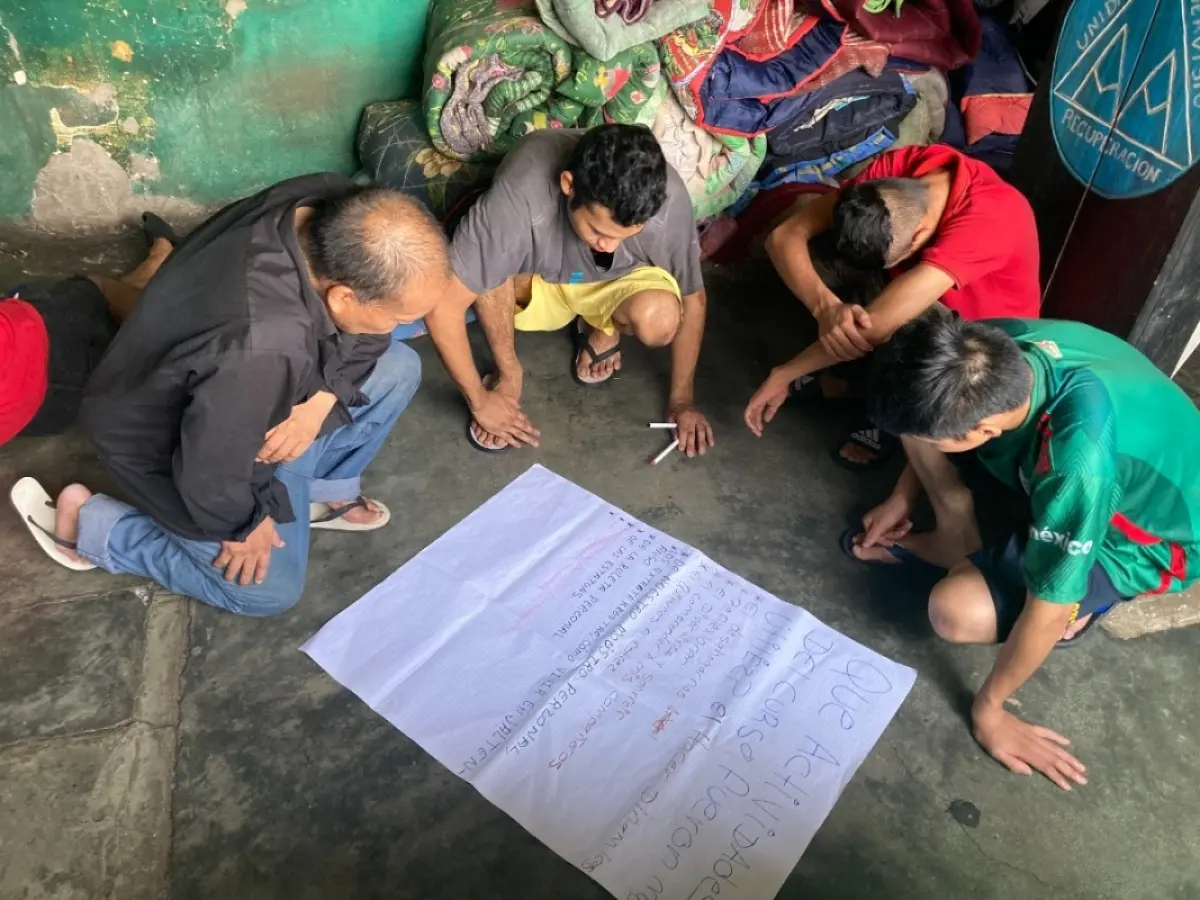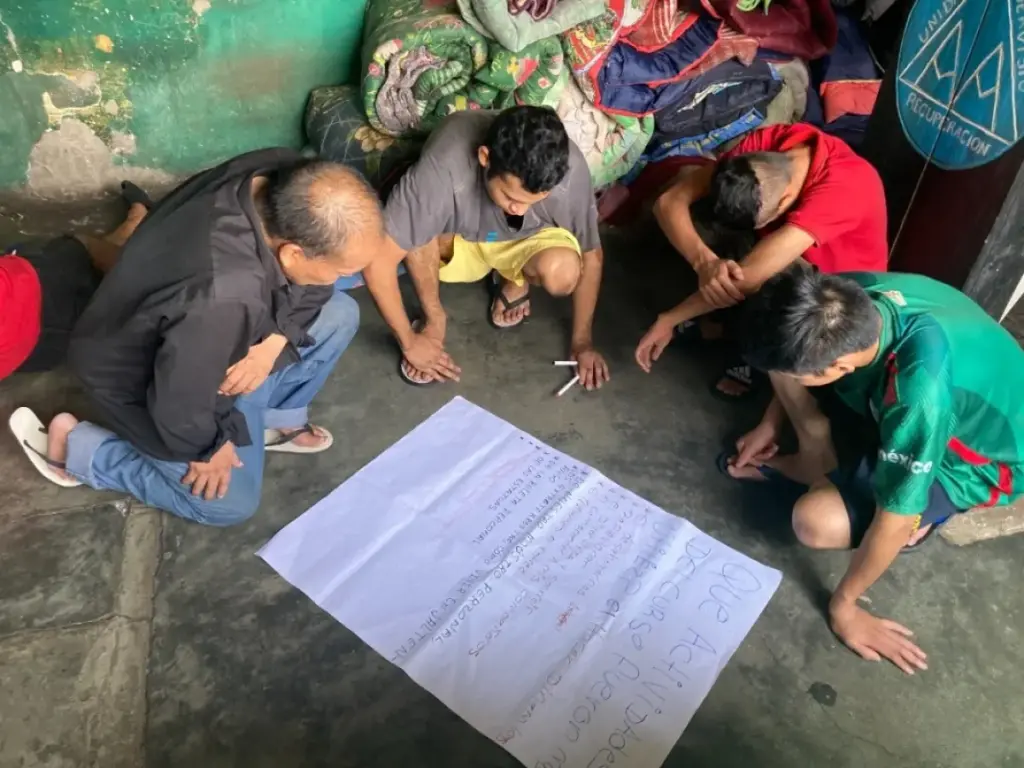In Mexico, support groups help men heal from substance use

Community-based mental health services crucial for accountability, trust, and holistic recovery
Posted on Sept 15, 2023

From 2010 to 2020, substance use increased by 26% across Mexico—but access to treatment has lagged. In rural areas like Jaltenango, a city in the mountainous Sierra Madre region of Chiapas, where Partners In Health works, heavy substance use has been evident, with alcohol being the most common, followed by marijuana, cocaine, and methamphetamines. But treatment for people who use drugs has historically been few and far between.
Substance use generally doesn’t happen overnight or come out of nowhere. It is complex and often linked to people’s trauma, mental health conditions, and the environments where they live. In most cases, it takes much more than abstinence alone to achieve rehabilitation—there are many social, psychological, and economic factors that influence a person’s recovery.
Since October 2022, Compañeros En Salud, as Partners In Health is known in Mexico, has run a mental health project called “Me cuido y nos cuidamos” (Spanish for “I take care of myself and we take care of each other”). Offered by the mental health team, the project is led by clinical psychologist Azul Marín and mental health community health worker Ervin Morales.
“Me cuido y nos cuidamos” works with men who are staying at one of the treatment facilities for substance use recovery in Jaltenango and with high school students at the nearby Centro de Estudios Científicos y Técnicos (CECyT). It has two goals: to create a safe space for men to reflect on their substance use and to unpack their understanding of masculinity.
The program was inspired by the success of Compañeros En Salud’s pilot of “Women’s Circles” in 2022, which promotes community, knowledge sharing, and wellness for women in the Sierra Madre region.
Twice a month, Marín and Morales gather reflection circles for men to discuss their feelings and experiences with substance use and their relationship with masculinity. As facilitators, Marín and Morales hope to help the participants process their experiences, identify their emotions, and learn tools for emotional regulation.
“We have had men who started using substances from the time they were 12 years old…and we believe it has a lot to do with cultural influence on what it means to be a man,” says Marín. “It is very much related that to be a real man, there has to be substance use involved.”
Globally, about 270 million people used psychoactive drugs in the past year and about 35 million are affected by drug dependence, according to the World Health Organization. Men are more likely than women to use almost all types of illicit drugs. In Mexico, 71% of people have used alcohol at least once in their lives and 8.6% have used marijuana.
There is no one reason why people use drugs, but substance use can often be related to mental health problems such as depression, anxiety, and poor anger management. Instead of prioritizing treatment for people who use drugs’ mental and physical health, governments have historically moved to criminalize drug use and imprison people, adding to the trauma that marginalized people, families, and communities already experience. But in recent years, more policies and programs have emerged that aim to address substance use as a public health issue.
“Me cuido y nos cuidamos” is one of those programs.
“There are a lot of men who don’t take care of their mental health, because no one has taught them how, and because of the social dynamics in which they operate,” says Morales. “There is pressure to be a man who has to put up with everything.”
Support groups like the reflection circles offer spaces for community and accountability—crucial in helping people on their recovery journeys, wherever they are in the process. The recovery model of care emphasizes that treatment is not medicine alone and that human rights are granted to all.
By building a more compassionate, emotionally aware, and conscious masculinity, the young men in the treatment facility have been able to form healthier relationships with themselves and others, as they continue on the path to recovery.
So far, 35 men have participated in the group.
“I questioned a lot where drugs have taken me, and I learned about what I was doing wrong,” says Osmin, one of the group members. “But what I learned most is that for as many things as I am or what I go through, I’m always going to be a person. I’m going to be me, and we all deserve to be respected.”
The project has not only had an impact on the men in the group, but also on those who facilitate it.
“Every day we are with them, they teach us a new lesson,” says Morales. “They are very strong and courageous people, and all this also helps to put a name to many processes that even I lived through.”
“Me cuido y nos cuidamos” will maintain its activities, continue to reach out to men seeking recovery from addiction, and work to prevent substance use among adolescents, offering support and a safe space for men to recover.
Originally published on pih.org



